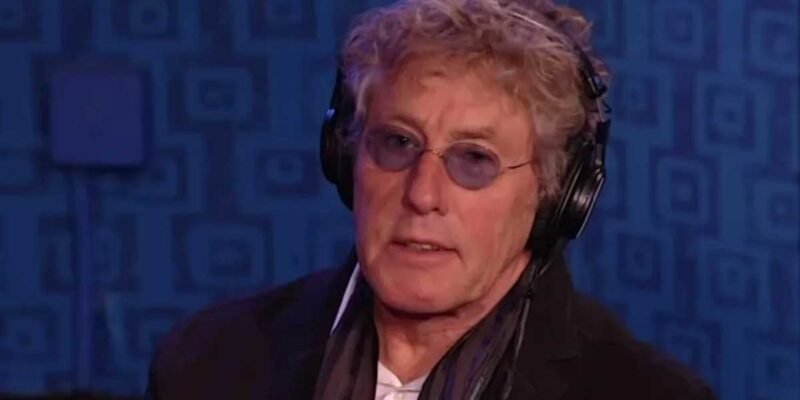When you think of rock and roll legends who’ve turned their musical passion into serious wealth, Roger Daltrey definitely comes to mind. The iconic voice behind The Who has spent more than sixty years in the spotlight, and his bank account shows it.
Roger Daltrey’s net worth sits at an impressive $90 million as of 2025. That’s not pocket change, even by rock star standards. But how did a kid from East Acton, London, end up with such a massive fortune?
Roger Daltrey Net Worth Overview
Let’s cut straight to the numbers. Roger Daltrey has built up a $90 million fortune that puts him in the upper tier of rock royalty. Some sources throw around different figures – TheRichest pegs it at $65 million – but most recent estimates land on that $90 million mark.
This wealth didn’t happen overnight. We’re talking about decades of smart decisions, hit records, and knowing how to make money work harder than a drummer at a Who concert. Daltrey’s fortune comes from way more than just singing “Won’t Get Fooled Again” a thousand times.
His wealth puts him right up there with other rock legends, though he’s not quite in Mick Jagger territory. Still, $90 million isn’t exactly struggling artist money, is it?
The Who’s Impact on Roger Daltrey’s Wealth
Here’s where things get interesting. The Who didn’t just make great music – they made serious money doing it. We’re talking about a band that’s moved over 100 million records worldwide. That’s a lot of vinyl, CDs, and digital downloads adding up to real cash.
Take “Who’s Next” from 1970. That album alone brought in around $3.5 million. Not bad for a bunch of guys from London, right? Then you’ve got “Tommy,” which pulled in over $2 million, and “Who Are You” adding another $2.6 million to the pot.
But here’s the thing about The Who’s money machine – it never really stops. Those songs keep playing on radio stations, streaming services pick them up, and TV shows love using their tracks. Remember how “CSI” used Who songs for their theme music? That’s licensing money rolling in year after year.
And don’t get me started on touring. The Who’s live shows have always been massive money-makers. Their upcoming farewell tour? That’s going to be one expensive goodbye for fans, but a very profitable one for the band.
Roger Daltrey’s Solo Career Contributions
Daltrey wasn’t content to just be “the guy from The Who.” He branched out early, and it paid off. His first solo album “Daltrey” hit number six on the UK charts back in 1973. Not too shabby for a side project.
The real money-maker was probably “McVicar” in 1980. Daltrey didn’t just sing on the soundtrack – he starred in the movie and produced it too. Talk about wearing multiple hats. When you’re involved in every aspect of a project like that, you get a bigger slice of the pie.
His acting career has been pretty steady too. Over 60 film and TV credits means regular paychecks coming in from different sources. Shows like “Highlander” and movies like “Tommy” kept the money flowing even when The Who wasn’t touring.
Then there’s his memoir from 2018, “Thanks a Lot Mr. Kibblewhite: My Story.” Book deals might not make you rich overnight, but they add up, especially when you’ve got stories like Daltrey’s to tell.
Early Career Struggles and Financial Growth
Here’s something that might surprise you – The Who weren’t always rolling in cash. Back in the 1960s, Daltrey and the boys were making about $800 a week in today’s money. That’s decent, but it’s not exactly rock star wealth.
They were playing high school gyms and had basically no control over their money in America. Can you imagine? These guys who would become legends were grinding it out, sometimes playing four shows a day just to make ends meet.
The real turning point was Woodstock. That festival didn’t just make them famous – it made them financially viable in America. Suddenly, they weren’t just another British band trying to make it. They were The Who, and that name started meaning serious money.
It’s wild to think about the contrast. From scraping by on weekly wages to building a $90 million fortune. That’s the kind of success story that only happens in rock and roll.
Real Estate and Personal Assets
Daltrey’s not just sitting on cash – he’s invested smart in property. His main home is Holmshurst Manor in East Sussex, which he’s owned since 1970. This isn’t just any house – we’re talking about a 20-room estate sitting on 400 acres.
The place has everything you’d expect from a rock star’s home. There’s a sauna, obviously, and he built a recording studio in one of the barns. Because where else would you put a recording studio?
But here’s where Daltrey gets creative with his investments. In 1981, he built Lakedown Trout Fishery on his property. It’s not just for show – it’s an actual business that brings in money from fishing enthusiasts. Who knew trout could be so profitable?
The property keeps growing in value too. He recently got approval to build another 4-bedroom house on the land. With 400 acres to work with, there’s plenty of room for expansion.
Current Income Sources and Recent Projects
Even at 81, Daltrey’s not slowing down much. The money keeps coming from multiple directions. Those Who royalties are like a pension that never stops paying. Every time someone streams “Baba O’Riley” or a TV show uses “Behind Blue Eyes,” there’s money heading his way.
The farewell tour happening from August to September 2025 is going to be huge. Farewell tours always are – fans know it’s their last chance, so they’re willing to pay premium prices. It’s bittersweet, but it’s also very profitable.
He’s still making new music too. His recent collaboration with Brian Wilson shows he’s not ready to retire completely. These projects might not make millions, but they keep him relevant and add to the income stream.
And let’s not forget about licensing. The Who’s music is still in demand for movies, commercials, and TV shows. That’s passive income at its finest – money coming in while you sleep.
Comparison with Other Rock Stars
So how does Daltrey stack up against his peers? Within The Who, he’s doing pretty well, though Pete Townshend edges him out with about $150 million. That makes sense – Townshend wrote most of the songs, so he gets the bigger slice of songwriting royalties.
Compared to other rock frontmen, $90 million puts him in solid company. He’s not quite at Mick Jagger or Paul McCartney levels, but those guys are in a league of their own. For a band that started in the 1960s, The Who’s collective $300 million net worth is pretty impressive.
What’s interesting is how different band members from the same era ended up with such different fortunes. It really comes down to smart business decisions, diversifying income, and staying relevant over the decades.
Roger Daltrey’s Financial Legacy and Future
Looking ahead, Daltrey’s wealth is pretty secure. The Who’s music isn’t going anywhere – if anything, classic rock seems to get more valuable as time goes on. New generations keep discovering these songs, which means the royalty checks keep coming.
At 81, estate planning becomes important. Daltrey has five children who stand to inherit not just money, but ongoing income from one of rock’s most valuable catalogs. That’s the kind of inheritance that keeps giving.
The Who’s music will probably outlive all of us. Songs like “My Generation” and “Won’t Get Fooled Again” have become part of the cultural fabric. As long as people love rock music, there will be money in The Who’s catalog.
Daltrey’s also been involved in charity work throughout his career, which shows he’s thinking about more than just accumulating wealth. Using your fortune to help others? That’s a pretty good legacy to leave behind.
The bottom line is this: Roger Daltrey turned a love of music into a $90 million fortune. Not bad for a day’s work – or in his case, sixty years of work. From those early days making $800 a week to his current status as a rock legend with serious wealth, it’s been quite a journey. And with The Who’s music continuing to generate income for years to come, that $90 million might just be the beginning of his financial legacy.
















